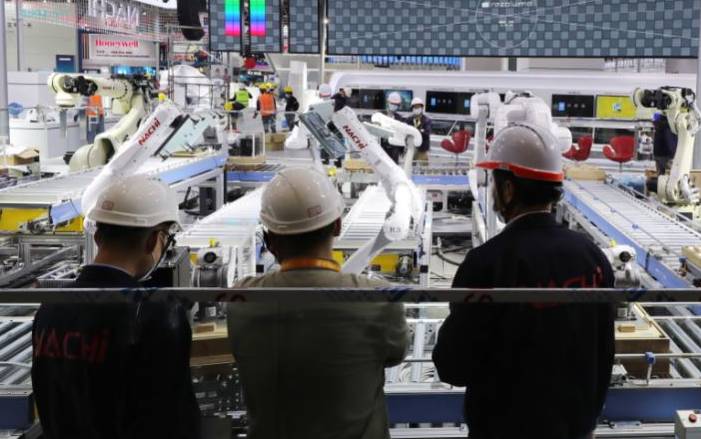×
The Standard e-Paper
Join Thousands Daily

Staff members debug a machine at the technical equipment exhibition area of the 3rd China International Import Expo (CIIE) in Shanghai. (Xinhua/Fang Zhe)
The third China International Import Expo (CIIE) is successfully held in the coastal city of Shanghai on Nov. 5 to Nov. 10.